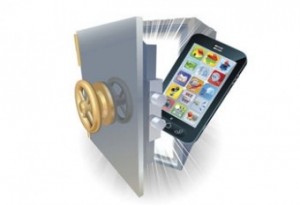The marketplace and technology giant is bringing encryption back after considerable consumer upset.
Amazon.com has now announced that it will be returning its encryption mobile security feature to its Fire tablets following complaints and upset from privacy advocates and customers that accused the massive online marketplace of quietly slipping the security option off the devices with its latest operating system release.
A spokesperson for the company promised that the feature would be returned to the OS in the spring.
Robin Handaly, spokesperson for Amazon.com, explained that “We will return the option for full-disk encryption with a Fire OS update coming this spring.” The decision to remove the encryption component of the Fire operating system’s mobile security fell into the spotlight quite suddenly this week. Amazon explained that the feature had been removed in one of its Fire OS versions that first started shipping in the fall of 2015 because there weren’t many customers who had used it in previous versions.
This mobile security feature scramble’s the device data so it is accessible only to someone who has entered a password.
 The encryption feature was built into previous versions of the Fire operating system and blocked access to the contents of the device to anyone who did not know the correct password. According to Bruce Schneier, a widely recognized cryptologist, Amazon’s choice to take down this encryption was “stupid.” Schneier was one of the large number of people and groups who were public about their criticism of Amazon’s removal of the encryption security and who publicly requested that the company bring it back.
The encryption feature was built into previous versions of the Fire operating system and blocked access to the contents of the device to anyone who did not know the correct password. According to Bruce Schneier, a widely recognized cryptologist, Amazon’s choice to take down this encryption was “stupid.” Schneier was one of the large number of people and groups who were public about their criticism of Amazon’s removal of the encryption security and who publicly requested that the company bring it back.
Amazon isn’t the only one that has been caught up in struggles with regards to mobile device security. Apple has also been facing several legal battles with regards to whether or not they should be required to unlock iPhones involved in criminal cases, including the case involving Rizwan Farook, one of the San Bernardino shooters.
This week, Amazon.com joined many other large tech companies when it added its signature to a court brief that was created to encourage a federal judge would take Apple’s side and not require that company to write code that would break through the mobile security of the iPhone used by Farook.

